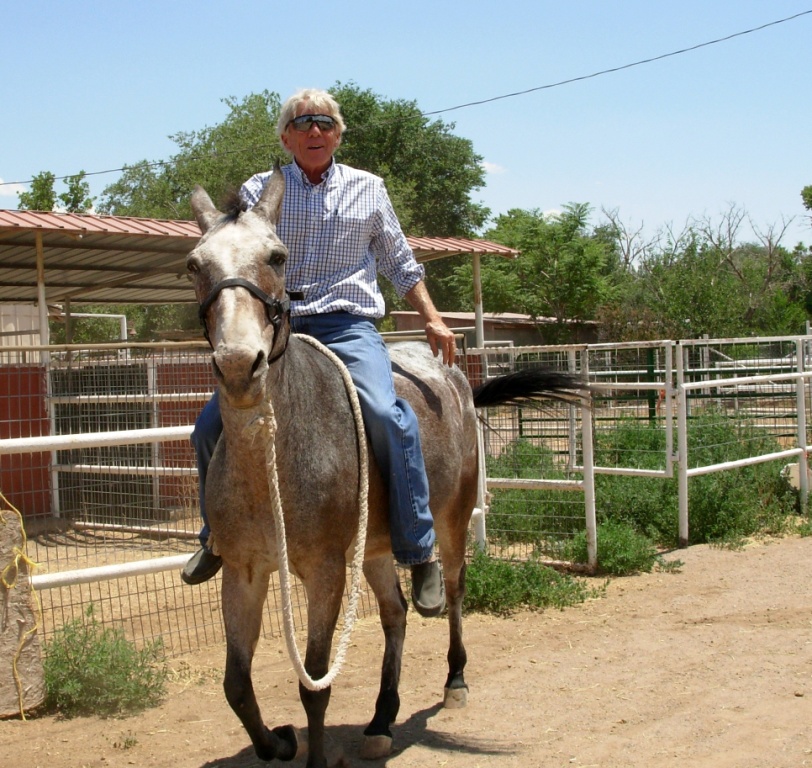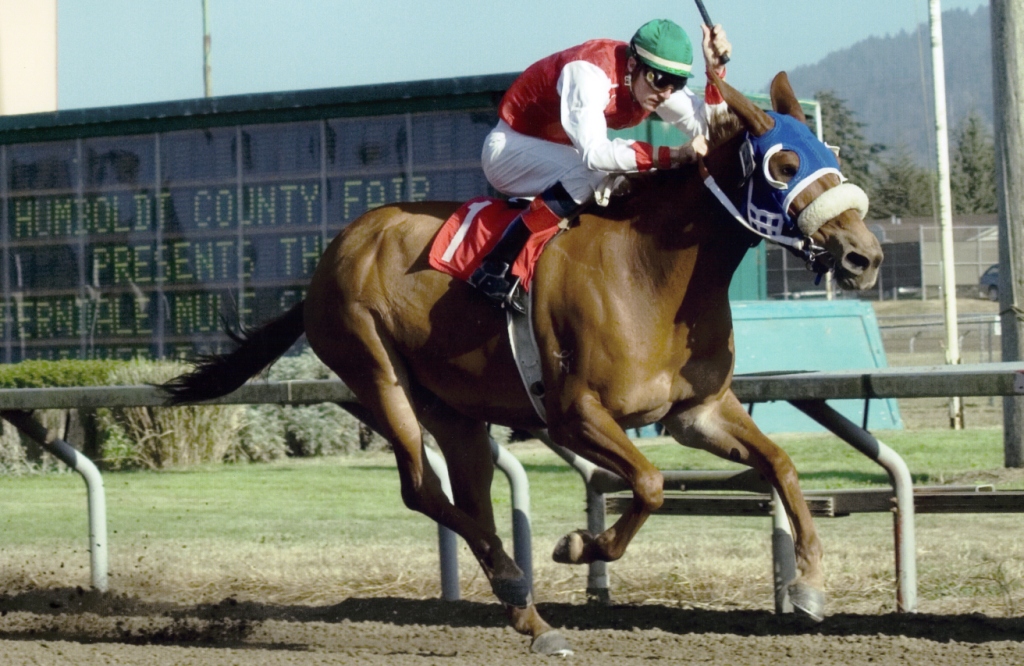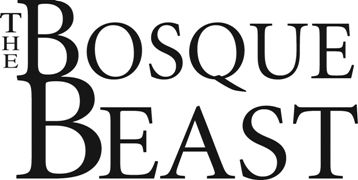My Mule Can Beat Your Honor Roll Student
Roger Downey proves this equine ain't no jackass

Roger Downey takes out his retired champion Pete Cooper for a midafternoon spin.
Roger Downey, Corrales resident and businessman, owner of some of the fastest mules in America, has a special way of calling his retired champion Pete Cooper, a mule who has
bested thoroughbreds at pole bending.
“Pete Cooper!” he bellows from the fence. “Git yer ass over here!” The mule ambles over purposefully, emphasizing with each step the cost to his free will. “Just look at how he comes
when I call him,” Downey beams with pride.
Mules are, of course, famously self-willed and deliberate, making the idea of a racing mule sound like a punch line. But for Downey, a sprightly, fast-talking player who barely knew a
horse from a mule when he moved here a quarter century ago, racing has only confirmed what he felt from the start.
Mules are the overlooked jewels of the equine world. They’re a revelation. Mules are smarter than horses and have an instinct for self-preservation, Downey says, which means they won’t
follow a stupid human command.
And that’s precisely the trait that makes the mule-lover different from his more common, horse-loving brethren—an appreciation for that quirky element of individuality.
“Riding the bosque right here,” Downey points behind his large, non-New Mexican home—a minimalist compound of distressed-metal boxes that snubs its nose at the charm of adobe—“It’s like a symphony the way a mule picks its way through the bush.”
Sure, they have a reputation for being plodding. “Plow and pack animal—sure, sure. So there is that stigma.” But he recalls the surprise that cowboys had while working his mules on the
Corrales ditch banks. “These kids had never ridden mules, fast mules—there’s the stereotype. And these animals move out!” he grins.
That such an animated impresario could fall for the most plodding and placid of equines simply testifies to the puzzling vagaries of love.
Downey, like many Corrales newcomers, pondered the question of horse ownership from the moment he arrived in 1987. But his son was more interested in high school sports, and
Downey—who ran a commercial insurance and surety bond business—breathed a sigh of relief. He had grown up in New York City and had no special longing for the saddle.
However, Friends in Austin put the idea of a mule into his head in 1990, and the idea stuck. By 1994, Downey was working the crowd at the American Mule Racing Association, nurturing the idea of competing with his mule Jethro.
“What a frickin rookie I was!” he laughs. He learned to ride Jethro on the ditch banks, but it was the mule who trained him. He got his son a mule too, and with typical over-the-top
intensity immersed himself in the world of racing, training, and breeding mules.
“I’m like that—I’m on it,” he says.
But it was a mule, once again, who called the shots. He was shopping for a 3-year-old, which he found in Oregon in 2002 for $2,500. He paid the seller $2,600 in a kind of snub, calling
the price too cheap. And he was right. Sarah Nelson has earned Downey $258,000 at the races, and her parents were both dead before anyone could think to breed siblings.
A mule is a cross between a mare and a jackass—a female horse and male donkey. To create a mule worthy of the racetrack, you need a fast horse and an athletic donkey. Their offspring
could run fast, if they wanted to—which is the big “if.”

Roger Downey’s prize mule Sarah Nelson triumphs in a winner-take-all challenge with another champion mule, earning Downey $5,000 in Ferndale, California, in August 2006.
That question, and the stroke of luck that was Sarah Nelson, stoked Downey’s mule fever. In 1999 he started breeding mules, all of whom he named Nelson, a family name. (Dina Nelson Road in Corrales, where he built his previous home, is named after his grandmother.) The breeding project has since reached the next level, as Downey had Sarah Nelson cloned in 2009.
This was the first mule cloned out of a live animal, as opposed to an embryo (like Idaho Gem, a mule that was the first equine ever cloned, in 2003 at the University of Idaho). Downey was
approached by the university to clone his champion mule, who had won eight of her first nine races. “The Queen of Mules” still holds a number of speed records, although at age 12 she is no longer the fastest mule in America.
Downey and Don Jacklin, president of the American Mule Racing Association, sponsored the cloning project. Unlike its counterparts in horse racing, the mule racing group allows clones to compete, and “here’s where the real intrigue is,” Downey says. “We know all the benchmarks for Sarah. The real interest is the heart and willingness of the animal.”
Little known outside Northern California, mule racing is limited by its small number of competitors. Downey keeps his racing mules in California, and commutes there during the
summer racing season. Some of his retired champs, however, like Pete Cooper, live here in Corrales.
“Yessir, yessir—this is something special here, something really special,” he says, grabbing the recalcitrant Pete Cooper and throwing on a simple halter and rope before hoisting himself
up, bareback. He’s obviously still taken with the 21-year-old retiree, who turns slow loops while Downey leans back, smiling and waving.
In a DVD about his breeding project, Downey is seen kissing his mules repeatedly, seemingly possessed by their adorability. He replays over and over the tape from the 2006 match-up between Sarah Nelson and Smoking Joe, a $10,000, winner-take-all purse that was one of the high points of her career.
“Lookit that! Lookit that!” he says, as Sarah Nelson is seen rebuffing the rival jockey’s attempt to push her off course. “She’s like, Get outta here!” Beaming with a father’s pride, Downey takes a moment to return to the present.
Having bred dozens of mules, including several champions, Downey has been to known to give away foals to his friends. But horses? Doesn’t he want to try at least one?
“Not particularly,” he says with a shrug, pausing to consider why. “I’m always for the underdog.”
